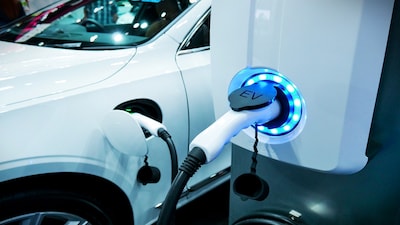Maharashtra, which celebrates Maharashtra Day today (May 1) and holds the second-highest electric vehicle ownership in India for FY2025, has launched an ambitious new EV Policy 2025 aimed at further boosting the rapidly growing demand for electric mobility in the state.
On April 28, the Maharashtra state Cabinet approved the new EV Policy 2025, which will be in effect for five years and comes with an allocation of Rs 1,993 crore. The policy aims to incentivize the manufacturing and purchase of electric vehicles, as well as the expansion of EV charging infrastructure. This new outlay marks a 114% increase over the Rs 930 crore allocated under the previous four-year policy that concluded on March 31, 2025.
The policy envisages installation and availability of a charging station at every 25 kilometres on state and national highways. This will help alleviate range anxiety issues for EV users on highways.
As per the Maharashtra EV Policy 2025, there will be a 10% subsidy on electric two- and three-wheelers, passenger vehicles (private), State Transport Undertaking buses along with private buses as well as municipal corporation buses. Electric goods-carrying three- and four-wheelers, as well as tractors and farming equipment (combine harvesters) get an additional 5% subsidy or 15% on their base price.
All EVs registered and sold in Maharashtra will continue to be exempted from motor vehicle tax and registration fees. Furthermore, in an effort to promote zero-emission mobility in the state, the policy has made travel toll-free for all four-wheeler passenger EVs and buses on the Mumbai-Pune Expressway, Mumbai-Nagpur Samruddhi Mahamarg and the Mumbai Trans Harbour Link (Atal Setu).
MAHARASHTRA TOP STATE FOR ELECTRIC 2Ws, CARS AND SUVs, CVs in FY2025
Maharashtra, which is the manufacturing base for a number of legacy vehicle manufacturers including Tata Motors, Mahindra & Mahinda, Force Motors, Bajaj Auto, Kinetic Group and Piaggio, is a key player in the overall EV scheme of things.
In FY2025, the state was ranked second overall on the all-India EV ownership scale with 246,221 units and a 12.52% share of India EV sales in FY2025 and has the bragging rights for being No. 1 in e-two-wheelers, electric cars and SUVs, and also e-commercial vehicles.
Of the 11,49,641 e-two-wheelers sold in India in FY2025, Maharashtra with 211,880 units, up 15%, had the largest share of 18 percent. Likewise, in electric car and SUV sales, the state led the charge with 17,133 units, up 21%, and a 16% share of the 107,782 e-PVs sold. The western state, which is home to the country’s financial capital, is also No. 1 in e-buses with 2,104 units, up 24%, and a 24% market share.
Vahan calendar year retail sales statistics for the past 10 years reveals that since CY2015, a total of 713,986 electric vehicles have been sold in the state.
In the just-concluded April 2025, which saw total EV industry retail sales of 167,465 units, Maharashtra accounted for 19,475 units which makes for a 12% share to maintain its No. 2 overall rank after Uttar Pradesh (37,830 units, 23% share) and above No. 3 state Karnataka (14,055 units, 8% share).
For April 2025, Maharashtra remains the No. 1 state for sales of e-2Ws (16,235 units) and accounts for 18% of the e-2W industry best-ever April’s sales of 91,791 units. It is ahead of Karnataka (11,845 units), Tamil Nadu (9,830 units), Uttar Pradesh (8,302 units) and Madhya Pradesh (5,858 units).
It is the same growth-leading story in electric passenger vehicle retails where Maharashtra, with 2,068 units is the state with the best monthly sales in April 2025, followed by Karnataka (1,422 units), Tamil Nadu (1,187 units), Kerala (1,171 units) and Gujarat (878 units).
In electric commercial vehicles, for April 2025, Delhi (278 units) has gone ahead of FY2025 topper Maharashtra, which sold 152 e-CVs last month and is followed by Tamil Nadu (121 units), Karnataka (64 units) and Bihar (37 units).
Maharashtra, however, trails in electric three-wheeler sales. In April 2025, it recorded retail sales of just 1,020 units, placing it 10th in the national rankings. Leading the segment are Uttar Pradesh (28,733 units), followed by Bihar (5,784 units), Assam (5,485 units), and Delhi (5,377 units). With the new, comprehensive Maharashtra EV Policy 2025—which includes subsidies for zero-emission cargo vehicles—the state will be looking to energize this underperforming segment.
👉 Click here to read the latest Gujarat news on TheLiveAhmedabad.com





